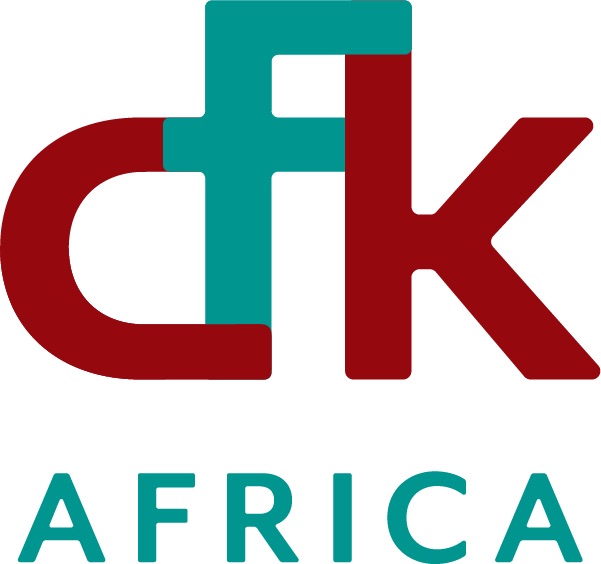Written by Emily Seiger
Dr. Emily Seiger completed her Ph.D. in the Department of Nutrition at the Gillings School of Global Public Health at the University of North Carolina at Chapel Hill. As a CFK Africa Peacock Fellow, she conducted her dissertation research in Kibera on how adolescent girls make diet-related decisions when faced with a variety of risks for malnutrition in collaboration with CFK Africa. A champion of the participatory development model, Emily works to center and value adolescent lived experience, ideas, and wisdom through mixed-methods participatory research. She shares her research experience and findings with us here.
Dr. Seye Abimbola in a BMJ Global Health Editorial writes about gaze—who we imagine we write for and pose—the position or standpoint from which we write. When thinking about foreign and local gazes and poses, he discusses the ideal for global health research as “local people writing about local issues for local audiences.” For much of my PhD and time as a Peacock Fellow, I undoubtedly had a foreign pose as an American conducting research in Kenya. In most cases, the writing I was doing was also for a foreign gaze. However, partnership with CFK Africa and a commitment to participatory dissemination and analysis helped expand the gaze from which I wrote and thought about my research.


I had the immense pleasure of partnering with CFK Africa to complete my dissertation to understand the dietary decision-making landscape for adolescent girls in Kibera. CFK Africa staff collected qualitative survey, interview, and focus group data and quantitative survey, health metric, and dietary intake data from adolescent girls and I joined the research team to collaborate on data analysis and writing. One of the keys to successful research partnerships is relationship building. Given the COVID-19 pandemic, developing in-person relationships for truly transformative community-based research was impossible. We did our best from a position of trust to build relationships virtually, participating in almost weekly data analysis meetings over Zoom.
After many virtual calls and Zoom sessions, I was finally able to visit Kibera in the summer of 2022 and meet the incredible staff at CFK Africa who I had worked alongside for the past year and a half. By being on the ground, I was also able to understand more about the systems and context from which the data I was analyzing came from. The commitment of young people in Kibera to their health and empowerment was evident through their engagement with CFK Africa’s Youth Friendly Services Center.
Due to the delay in which I was able to travel compared to when the data was collected, as well as the short duration of travel, one challenge I continued to face was an inability to meaningfully interact with the adolescent girls who had participated in the study to ensure the conclusions we were coming to were true to their lived experiences. Despite my individual inability to interact with the adolescent girls, CFK Africa’s commitment to participatory development meant that they maintained consistent interaction with the girls, both formally through their programs and informally as CFK Africa staff are integrated into the Kibera community. Trusting in CFK Africa’s model, we forged ahead to understand the adolescent dietary landscape.
Adolescent girls in Kibera are knowledgeable, resourceful, and solutions-focused. For every nutrition ‘problem’ identified through the study, adolescent girls were aware of the problem, had ideas about why the problem existed, and had ideas for addressing the problem. From our quantitative dietary intake analysis, we found that many girls were only eating 1-3 food groups each day rather than the recommendation of at least 5 food groups. In qualitative research, girls expressed a deep desire to eat a wider variety of foods and have a balanced diet, yet due to the cost of food and the availability of money in their family, were not always able to eat more than staple foods like ugali and dark leafy green vegetables.


One critical component in girls’ decision-making process of what to eat was food safety. Adolescents chose to eat foods that were ‘riskier’ for noncommunicable disease, like fried foods, when they ate outside of their homes because they perceived those foods to be prepared with better food safety than foods that were ‘protective’ for noncommunicable disease like fruits, vegetables, and proteins. Adolescents were aware and concerned about cleanliness, food safety, and the preparation of foods eaten at school and at roadside vendors in Kibera.
Adolescent girls suggested the use of gardens at school to address the problems of diet diversity and food safety. They wanted to co-learn with their peers, teachers, and parents through group knowledge sharing and active learning activities to improve nutrition and wanted to be asked about their ideas for improving their diet more often. Key findings from our research will guide the development of CFK Africa’s future nutrition projects.
Adolescence is a unique time where girls have a lot of responsibility, but not a lot of power to make decisions or implement their ideas. Investing in and trusting adolescents is essential to improving their nutrition and diet. If we—CFK Africa, global health researchers, and global organizations alike—are going to target adolescents with programs, the programs should focus on collecting adolescents’ ideas, engaging them in the solutions rather than ‘educating’ them or designing a program without them.
While my time in partnership with CFK Africa is coming to a close, I trust and support the commitment of CFK Africa to continue to engage adolescent girls in their future program and intervention design driven by participatory dissemination and evaluation throughout the research process. For me, as I move forward in my career, I will continue to seek out research partnerships that center those with lived experience. In global work, that means continuing to partner with organizations like CFK Africa who are integrated with and committed to the community, while prioritizing research materials that shift away from the foreign gaze and pose and put the gaze and pose of the partnership community at the forefront.
